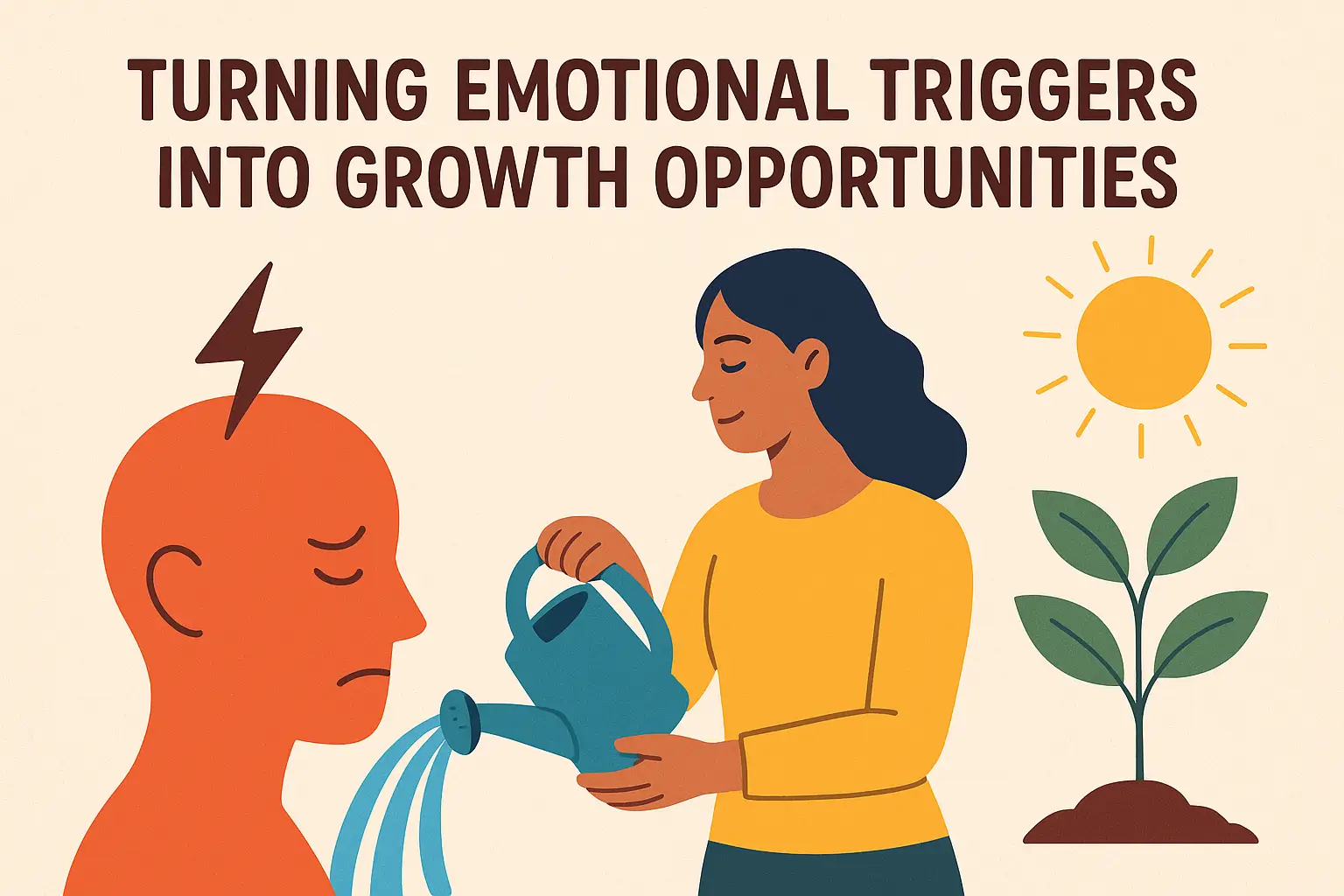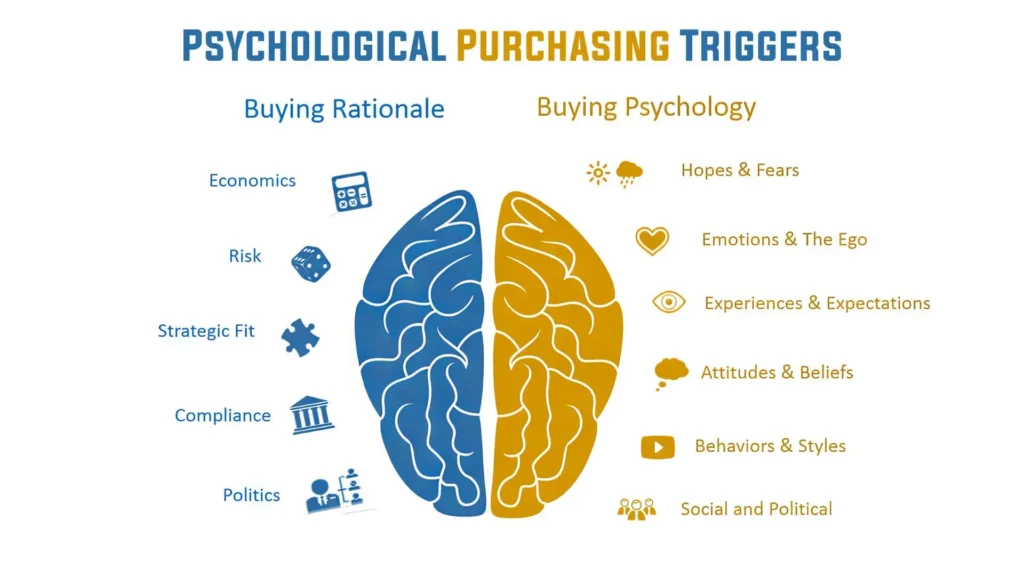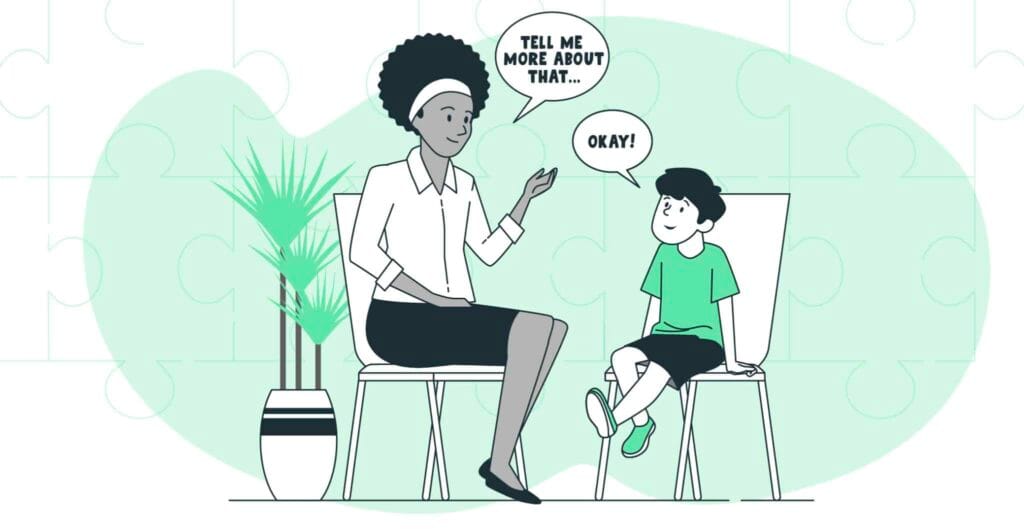
Do you know, Instead of perceiving these internal messages like enemies, treat them as messages from the inner you to heal. Triggers are not here to break you down. They are opportunities from Allah to connect closer to Him?
The Psychology of Triggers
Psychologists believe that emotional triggers are linked to a past time of pain. Deep childhood experiences create these deep emotional reactions. Today, a perfect life event may serve as a reminder of a past hurt. The brain may send emotional messages of all it can invent to get you to stop feeling that past hurt.Dr. Susan David explains that “emotions are data, not directions.” Emotions can guide us, but they are not the final say. Instead of running from your emotions, observe them purposefully. Feel what needs healing.

Common Emotional Triggers We All Go Through
Criticism can trigger shame. The feeling of being neglected could trigger rejection. A loss can trigger sadness or anger. Some people just want to be disrespected. Some people feel unsafe in a place of powerlessness. Everyone has a trigger. We all have a list of triggers and the emotional responses that go with them. Think of them as open doors. Once you walk inside, you can begin to see deeper and deeper into yourself spiritually.
Islamic View: Emotions are from Allah
In Islam, emotions are our innate design. We did not ask to feel angry or sad. Emotions do not lead us to fires of hell. They are signs which live within us.
The Prophet Mohammad ابو قترة عزل الاسلام and said we are more than just have had the experiences. He cried and he grieved; when he was happy he smiled. He never lost himself in emotion; rather he used those emotions to connect with Allah. Our emotions should lead us to prayer NOT panic. That is the ultimate transition into spiritual growth.
Read more: 10 Signs You’re Stuck in the Past
Real-Life Islamic Example: The Prophet at Ta’if
The journey to Ta’if was painful – the Prophet ﷺ was insulted. He sustained physical injury too. His heart suffered, and his body suffered. He could have chosen to be angry. Or he could have chosen bitterness. He didn’t; he turned to Allah, in heartfelt supplication, or dua, “If you are not angry with me, I do not care. “The profundity of the surrender shows us that pain can potentially hinder us from getting near to Allah, but pain can just as easily bring us even closer.
Step 1: Pause before Acting
Once triggered, do not act immediately! Just pause…disconnect. Say nothing. Breathe.
Say: “A’udhzu billahi minash shaytanir rajeem.” This to break the heated emotion and create spiritual way space. This little pause before acting is powerful. It provides your soul with an opportunity to select to exhibit wisdom instead of reaction.
Step 2: Ask Yourself “What is this Trigger Signaling to Me?”
Every emotion has a message behind it, and you want to listen closely. Ask yourself, “What was it about the situation that hurt me?” Often, the ‘situation,’ is not the real issue, but instead feelings that are touched off from within you. Fear. Shame. Old trauma.
The Quraan teaches us: “Indeed, Allah will not change a people until they change what is within themselves.” (13:11) So the important first step is inner change. Triggers can give you the exact place to start that change.

Step 3: Identify the Emotion Concretely
Say it out loud or write it down: “I feel angry.” Or, “I feel small or invisible.”
Saying the emotion you feel help the brain calm down, a process psychologist’s call “affect labeling. “Once you identify it, you are stronger than the emotion. The Prophet ﷺ routinely identified and understood the emotion he had in himself or in others. This was sunnah.
Step 4: Connect the trigger to the past
Your powerful emotional reaction is rarely just because of today. It’s usually about something much deeper. Ask yourself: “When did I feel this way before?” Perhaps a childhood rejection? Unrecognized pain? Or broken trust?
This process will expose old wounds — but only to clean them and heal them in a meaningful way. Once you connect your emotional reaction to memory, you become more conscious and less at the mercy of your emotions.
Step 5: Use Dhikr to reset your internal state
Once you’ve completed this reflection, orient yourself to Allah’s place at the center. Say: “Hasbi Allah wa ni’ma al wakeel.”Remembering Allah is dhikr; dhikr softens the heart and resets your energy. It brings back your awareness of Allah still being with you, you are not alone. The Prophet ﷺ said, “The one who remembers Allah is like the living.” (Bukhari)
Dhikr can turn emotional visions into spiritual quietness, dhikr is the best reset of all.

Step 6: Transform the Trigger into a Teaching Moment
Now ask, “What is the trigger trying to teach me?” It may be asking you to slow down. Or it may be showing you have need to forgive, set boundaries, or develop spiritually. Each emotional trigger has a lesson it is trying to teach you. And if you learn the lesson, the emotion is revealed from its inner pain and becomes a light on the path to healing and spiritual education.
Psychology Case Study: Sarah’s journey
Sarah was 28 years old and she got angry and explosive when others disagreed with her, she felt unseen and disrespected. In therapy, she realized her father would suppress her opinions growing up. Every disagreement acted like a reminder to an old wound. Her reactions were not to the present moment, but to the past moment. Once she recognized this, she stopped blaming others. She began pausing, breathing and responded with calmness.
Instead of triggers feeling like attacks on her ego, they started to feel like mirrors to herself, showing her where to heal next.
Step 7: Give Yourself Some Compassion
You are human. Experiencing triggers does not indicate you are flawed. You are simply living, and growing.Treat yourself with compassion like Allah treats His creation. By saying to yourself: “I am doing my best”.
As the Prophet ﷺ said: “He who has no mercy, will not be shown mercy”. (Tirmidhi)
Offer that compassion to yourself. It will allow for growth, being kinder, and feeling more authentic.
Final Reflection: Allow Your Wounds to Guide You to Allah
Emotional triggers are not punishments. Emotional triggers are invitations from your Lord to look inward. As stated in the Qur’an: “With hardship comes ease.” (94:6) this ease, includes feeling inner strength, and deep wisdom. So, do not flee your triggers. Greet them with courage, and let them reveal hidden strengths to you. Let them open your heart to Allah, in new ways. This is the true mark of emotional and spiritual success.



Leave a Reply